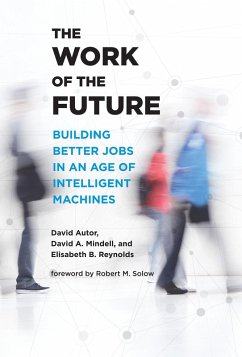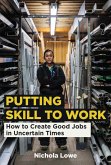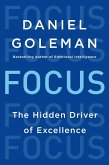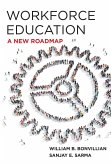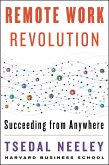Dieser Download kann aus rechtlichen Gründen nur mit Rechnungsadresse in A, B, BG, CY, CZ, D, DK, EW, E, FIN, F, GR, HR, H, IRL, I, LT, L, LR, M, NL, PL, P, R, S, SLO, SK ausgeliefert werden.
Hinweis: Dieser Artikel kann nur an eine deutsche Lieferadresse ausgeliefert werden.
the Wall Street Journal
"The authors push back on the notion that technological advances will lead to the elimination of countless jobs in the future.Technological change, they emphasize, takes time to unfold and creates new job opportunities even while destroying old ones.In fact, public policy has been more important than technology in shaping labor-market outcomes, specifically for less skilled workers without college degrees. Although all advanced economies have experienced technological change, the United States has seen a sharper divergence between productivity and wages, a more dramatic decline in labor s share of national income, and a more pronounced rise in poorly compensated jobs, all as a result of policy, not technology.These economic trends and their social and political consequences, the authors argue, can be reversed by an increase in the federal minimum wage, which would spur employers to take steps to boost the productivity of low-paid workers; by legal changes that enhance the ability of workers to organize and represent themselves collectively."
Foreign Affairs
"Building on their joint work for the MIT Task Force on the Work of the Future, Autor, Mindell, and Reynolds present an excellent, easy-to-read summary of the ways in which advanced technologies have affected labor markets both before and during the pandemic. The text is organized into two parts to align with the driving idea that both institutional innovations and complementary technical advances are needed. The first part provides a broad overview of labor markets, the development of technologies over time, and the ways those technologies impact labor markets. Part 2 examines what is needed to reform US institutional policies with respect to technology and labor so as to bring the country out of its current state too many low-wage jobs and "towards [a] shared prosperity" in which workers can also benefit from economic growth. Most of the book represents continuation of the existing discussion from previous task force publications and thus covers familiar ground for those acquainted with the project. Nevertheless, the volume will still be a useful addition to most library shelves."
CHOICE
"The book provides a valuable catalog of specific policy initiatives that could make a difference."
Charter News

